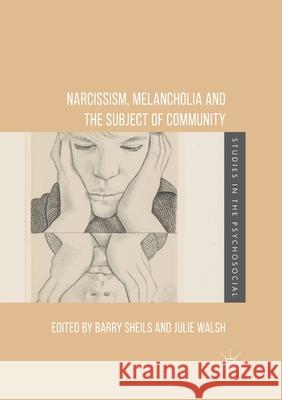Narcissism, Melancholia and the Subject of Community » książka
topmenu
Narcissism, Melancholia and the Subject of Community
ISBN-13: 9783319876481 / Angielski / Miękka / 2018 / 281 str.
Kategorie:
Kategorie BISAC:
Wydawca:
Palgrave MacMillan
Seria wydawnicza:
Język:
Angielski
ISBN-13:
9783319876481
Rok wydania:
2018
Wydanie:
Softcover Repri
Ilość stron:
281
Waga:
0.35 kg
Wymiary:
21.01 x 14.81 x 1.55
Oprawa:
Miękka
Wolumenów:
01
Dodatkowe informacje:
Wydanie ilustrowane











